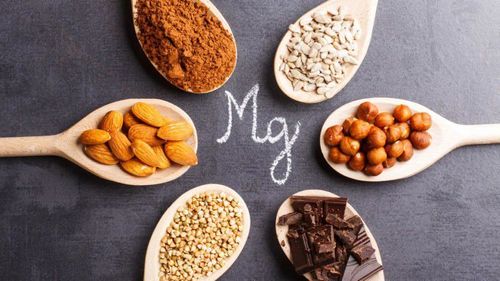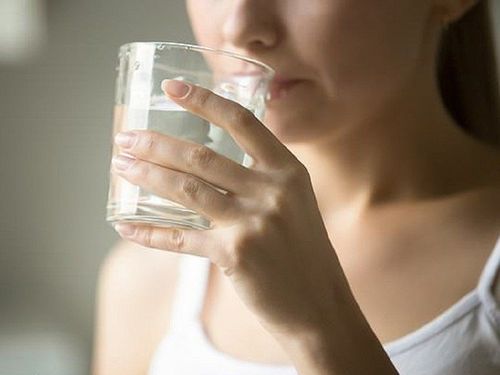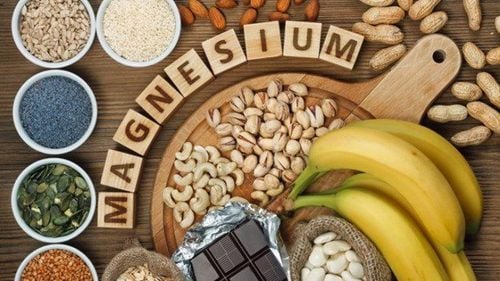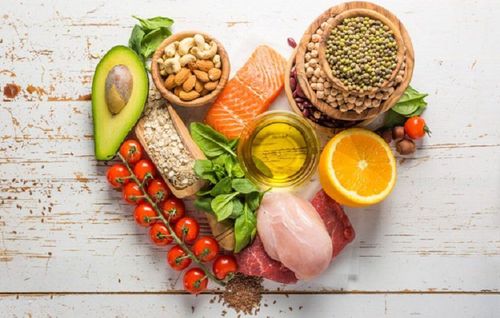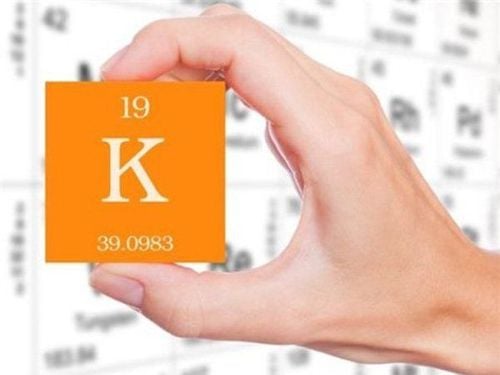This is an automatically translated article.
Water retention is a common health problem for most people. It can happen when you have unhealthy lifestyle habits, such as eating too much salt, getting little exercise, or regularly eating fast food. When the body is water retention will lead to symptoms such as swelling, edema, bloating, among a number of other signs.1. What is water retention?
Conditions such as sitting on a plane for a long time, changing hormones and eating too much salt can cause the body to retain excess water. The human body is made up mainly of water. When the hydration balance is disrupted, the body tends to retain water, leading to conditions such as bloating, swelling, puffiness or puffiness.
Water retention is one of the common health problems, and can happen at any time. Some of the factors that cause this condition include genetics, menstrual cycle or diet. To help reduce water retention in the body, you should create and implement healthier lifestyles.
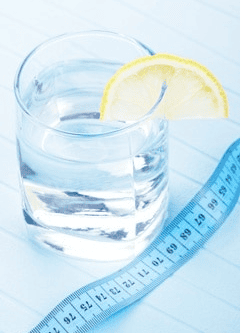
Tích quá nhiều nước trong cơ thể cũng có thể gây ra một số vấn đề
2. Symptoms of water retention in the body
When the body is water retention, you will have the following symptoms:
Bloating, especially in the abdomen Swelling of the legs, feet and ankles Swelling of the abdomen, face and hips Stiffness of the joints The weight of the body is changed Abnormal changes Appearance of indentations on the skin
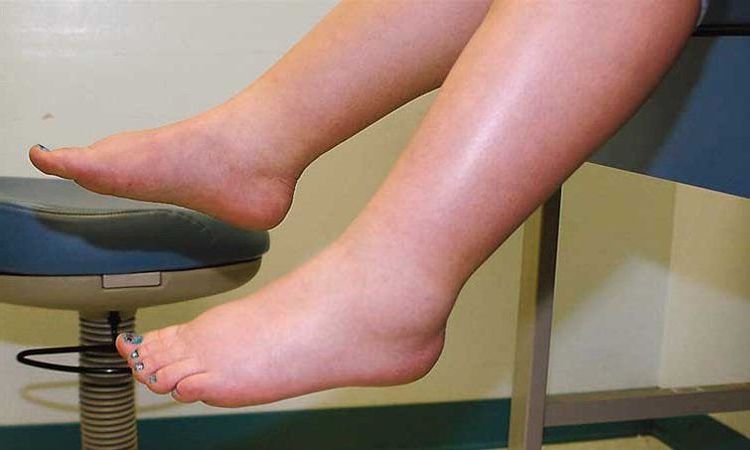
Sưng chân là dấu hiệu phổ biến của bệnh
3. Causes of water retention in the body
Water retention can be caused by many different reasons, including:
*Airplane: changing cabin pressure and sitting for a long time can cause the body to retain water.
*Diet: The human body needs sodium, a mineral that plays an important role in regulating blood pressure and fluid levels. However, if you consume too much sodium, you can experience water retention in the body. Table salt is one of the richest sources of this mineral, in addition, you can find them in a number of other foods, such as biscuits, meat, chips, vegetables, processed foods. , even fresh water.
To control your sodium intake, you should carefully check the nutrition labels of foods and drinks before choosing to use them. Alternatively, you can also balance your sodium intake by eating foods rich in potassium, such as spinach, bananas, and drinking plenty of water.
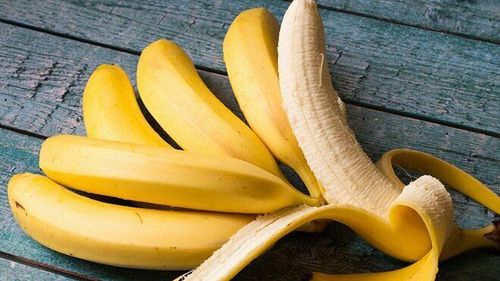
Ăn chuối là một cách bổ sung kali
*Sitting or standing for too long: usually, the impact of gravity makes it difficult for the body to circulate blood. This increased pressure inside the blood vessels in the legs and feet, and caused fluids to leak into those tissues.
When you sit or stand for too long can cause tissues to retain water, leading to conditions such as swelling in the legs or ankles. To improve this problem, instead of standing or sitting all day, you should spend more time moving your body.
*Hormones: Some women may experience symptoms such as bloating or swelling in the days leading up to their menstrual cycle. This is completely normal and it should go away after a few days. In addition, taking birth control or hormone replacement therapy are also major factors in causing water retention.
*Use of drugs: the use of some drugs to treat diseases can cause side effects, including water retention in the body. These medications, including:
*cardiovascular problems: a weak heart cannot do its job of pumping blood well, which can cause the body to retain water and cause swelling in the legs or belly. Even heart failure can cause dangerous fluid buildup inside the lungs.
* Deep vein thrombosis (DVT): is a phenomenon where blood clots form in a vein, causing typical symptoms such as swelling in one leg, pain, or redness.
*Pregnancy: Weight changes during pregnancy can cause your legs to retain water if you don't move often.
*Some other causes, including:
Cancers such as ovarian, liver or kidney cancer Kidney disease Protein loss due to severe malnutrition Liver cirrhosis Lymphedema
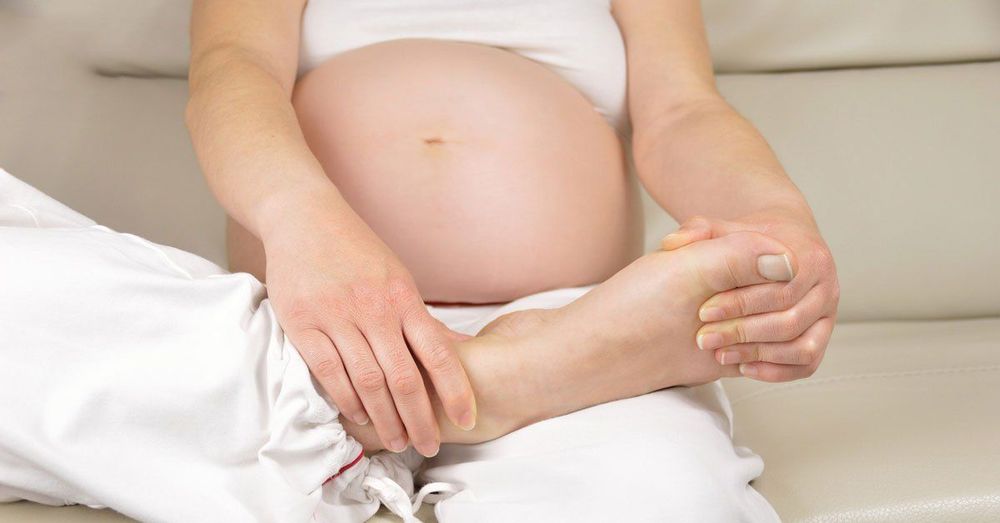
Mang thai cũng là một trong những nguyên nhân gây tích nước
4. Complications of water retention in the body
Constant water retention can be one of the common symptoms of the following dangerous conditions:
If the body does not return to equilibrium naturally, you should seek medical help. for advice and timely treatment.
5. Measures to help overcome water retention
To effectively prevent and control water retention in the body, you should follow the following methods:
*Eat less salt: try to limit sodium intake. It is recommended that people eat no more than 2,300 milligrams of sodium per day. To do this, say "no" to processed or canned foods.
*Add foods rich in potassium and magnesium: these foods can help you balance the amount of sodium in your body. Some good sources of these two minerals include bananas, avocados, sweet potatoes, tomatoes, spinach,...
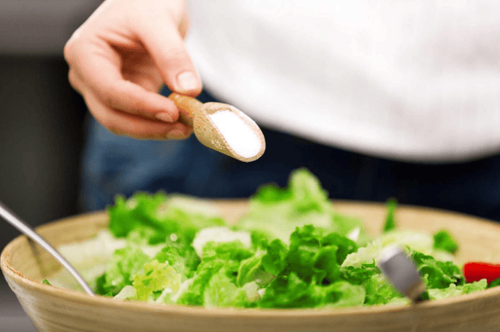
Hạn chế ăn muối để tránh tích nước
* Boost vitamin B6: Some studies have shown that vitamin B6 has a great effect in significantly reducing women's premenstrual symptoms, such as water retention.
*Loading protein: protein is a substance capable of absorbing water and keeping the body's balance. You should supplement with a special protein, called albumin, that holds the fluid in and prevents it from leaking out and causing swelling.
*Regular exercise: you should exercise regularly for at least 30 minutes a day, for example, walking, jogging, swimming, cycling,... This helps the blood circulation process. become easier, thereby preventing water retention in the body.
If you have a need for consultation and examination at the Hospitals of the National Health System, please book an appointment on the website for service.
Articles refer to sources: webmd.com, healthline.com
Please dial HOTLINE for more information or register for an appointment HERE. Download MyVinmec app to make appointments faster and to manage your bookings easily.




